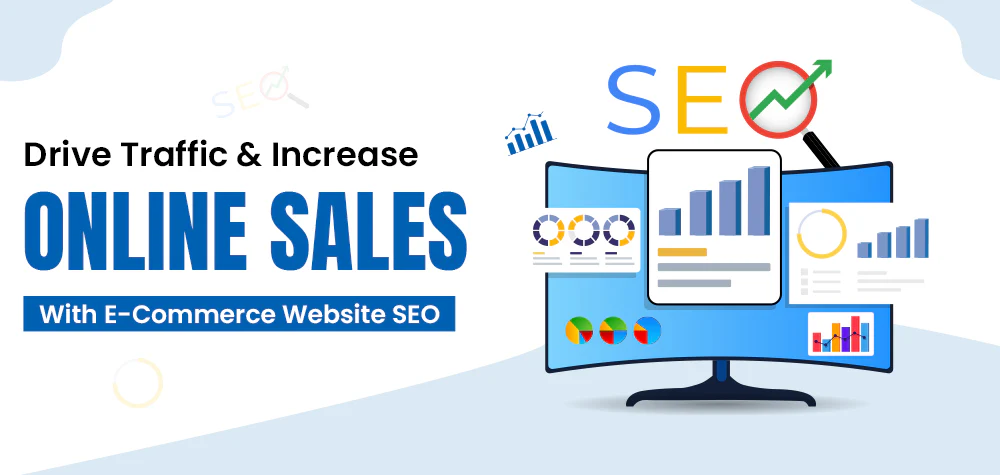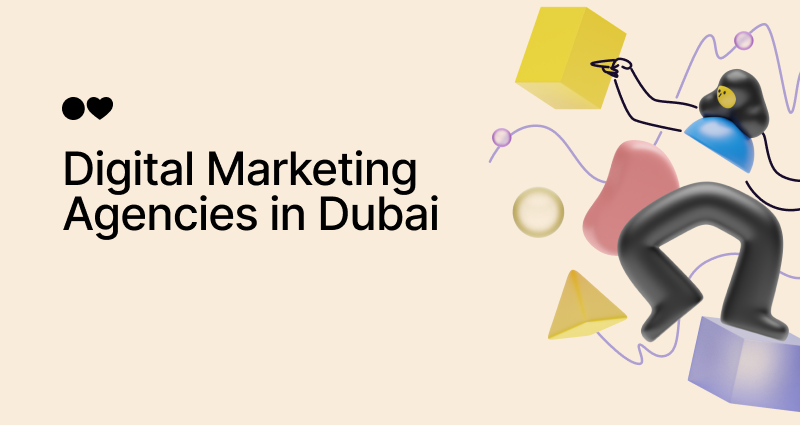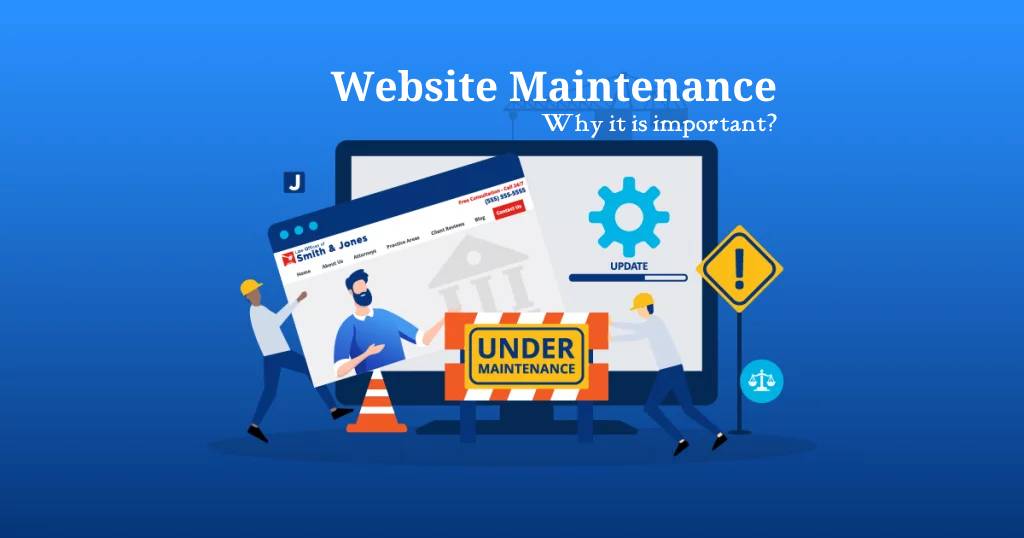
‘Working with an ecommerce SEO company is like changing the course of the online store, pretty much as a good navigator would do in a ship; you no longer merely drift, but instead, you start to sail toward your destination. These days, with digital shoppers searching every minute of the day, comparing prices, and reading reviews before they make a purchase, your store may have the best products, but unless they’re visible strategically, it’s invisible among the masses.
A professional ecommerce SEO company will make sure your brand shows up at the right time: when the customers are looking for what you are selling. Conversely, it is never just about more traffic, as good SEO brings qualified visitors and reduces friction across the shopping journey-arguably resulting in far better experiences for buyers. Each touchpoint gets stronger, optimized, and profitable.
Next, we detail exactly how professional SEO can mold an online store from its generic form-an eCommerce website-into a high-performance digital asset that really pulls in revenue.
Competitive Analysis/Assessing Your Website and Understanding the Competition
Thorough auditing is just the backbone of any successful SEO plan. Look at it this way: it is sort of the diagnostic scan of the health of your store. Without a full understanding, even minor issues can cause big bottlenecks.
An ecommerce SEO company would start off by assessing your entire digital ecosystem, from crawling the site in the very same manner as Google by looking at how pages communicate with the search engines to reviewing patterns of user behavior. It would also review everything, including how the homepage is structured down to those tiny product pages, for both technical and strategic shortcomings.
The major areas covered in a full audit are as follows:
Technical performance: page load times, server response, broken links, problems with indexing and crawlability.
User behavior: Bounce rate, drop-off points, heatmaps, click flow, mobile activity
SEO elements: meta descriptions, titles, header structures, product schema, and image optimization
• Content quality: keyword alignment, relevancy, readability, topical clustering
• Backlink profile: toxic links, authority-building opportunities, competitor link gaps
A strategic audit will show, not just what is broken, but also what’s missing. For instance, your store could sell hundreds of products but lack structured internal linking. Or it could have great branding in place but weak category content. You might enjoy the traffic but be completely devoid of any conversion focus.
Deep competitor research provides a second layer of insight:
• The loading speed of your competitors’ websites
• What keywords they rank for
• Type of content that brings them traffic
• Which blogs or websites link to them
• How they structure their buyer journey
Competition isn’t just a hurdle; it is a worthy case study filled with information. Their weaknesses will be the gaps you fill in. Their strengths show you the standards that you’ll have to beat. Continuous monitoring of competitor insights allows your store to stay ahead of shifting trends and search behaviour.
Choosing the Right SEO Keywords for Your Online Store
Keywords are how customers find you, and the selection involves much more than a guess as to what people are typing into Google. Data-driven mapping and intent-based research are what a professional ecommerce SEO agency depends on to guide its keyword selection.
A strong keyword strategy includes:
• Transactional keywords: These are those utilized by customers to complete a transaction.
When comparing products or brands, commercial investigation keywords are used.
• Informational keywords: used earlier in the buying journey
Long-tail keywords: highly specific, less competitive, and high-converting
• Seasonal or trend-driven keywords are those related to holidays, events, and shifts in demand.
A good SEO team is going to look at search volume, competition, click-through potential, and user intent to make a decision on which keywords go on product pages, category pages, and which need blogs or buying guides.
Table of Contents
ToggleWhy Keyword Precision Matters:
• Ranking for the wrong keywords results in traffic that does not convert.
• With a ranking for broad keywords alone, you are vulnerable to competition.
• Long-tail keywords ignored mean money left on the table
• Poor use of keywords creates low organic visibility.
Your SEO company will not just help you rank but helps you rank in a manner that matches how customers actually shop. The path from search to checkout just gets shorter and much smoother when search intent is aligned with your content.
Deliver Seamless Customer Experiences
The search engines reward websites that people actually enjoy being on. If your store looks outdated, loads slowly, confuses visitors, or has them jumping through hoops, Google will continue ranking it lower. Customer experience isn’t a design preference; it’s an SEO advantage.
What affects customer experience?
• Speed: Delays longer than three seconds increase abandonment
• Navigation: A customer should find a product in 2–3 clicks.
Mobile usability: Nearly 70% of all shopping sessions begin on a phone
Visual clarity: clean images and scannable layouts reduce friction.
• Clarity of content: Product information should be helpful yet not overwhelming.
• Checkout flow: fewer steps mean higher conversions
Detailed insights into how users are experiencing each and every page come from the UX audit, heatmap tests, and behavioral recordings performed by the eCommerce SEO agency. Often, subtle changes in category menu restructuring, rewriting of descriptions, or enhancement of filter options create very dramatic improvements in user retention.
Behavioral signals monitored by search engines include:
• Time on page
• Scroll depth
• Click-through rate
• Bounce rate
• Returning visitor rate
If those signals show that your website satisfies searchers, then your rankings increase. If they indicate confusion or frustration, the visibility decreases. The enhancement of customer experience will affect how search engines directly rank your store.
Capturing Leads, Not Just Visitors
Traffic will be worth something only if you know how to keep the connection alive. Most shoppers browse without buying. Some add products and leave. Some will compare prices before returning days later. An SEO company creates a system for you that captures leads instead of losing them forever.
Effective lead capture systems would include:
Pop Ups: Small discounts to encourage signing up
• Exit-intent prompts: last-minute offers preventing abandonment
Abandoned cart emails remind customers about their lost sales.
Retargeting ads are used to bring back warm audiences who have browsed earlier.
Content-driven lead magnets include guides, lookbooks, and coupons.
• Loyalty programmes: rewarding engagement, not just purchases
An advanced lead capture strategy would be one that offers opportunities for customer development through a series of touches; even when one doesn’t buy immediately, you’re always within their line of vision. Continued touches over time will convert cold traffic to warm leads and eventually buyers.
On-page and Off-page Content Marketing Strategies
Content is the fuel for the whole SEO ecosystem. Good content is that which makes it easy for search engines to classify your site. Great content builds customer trust in your brand. Exceptional content earns links, shares, and authority—the currency of ranking.
On-Page Content Optimizations
An e-commerce SEO firm optimizes content on:
Product Descriptions: keyword-rich, emotive, and highlighting the benefits.
Category pages should be informative, structured, and optimized for intent.
Blogs and guides: answering buyer questions, building SEO depth
• FAQ sections: Reduce confusion and increase conversion
• Videos, comparisons, and tutorials: Engaging formats that increase time on page
On-page content is where SEO meets persuasion. It’s simply not enough to rank; the visitor needs to feel confident about making a purchase.
Off-Page Content Optimisation
Off-page activities enhance your domain authority:
• Creating high-quality backlinks
Influencer marketing
• Publishing expert guest posts
PR features generation
• Encouragement of user-generated content, reviews
• Craft hyperlink-worthy content
An ecosystem of this kind sends a message to the search engines that your brand is relevant, trusted, and valuable.
SEO + Search Engine Marketing = Maximum Growth
While SEO provides organic visibility, SEM provides instant visibility. Both combine to strike a perfect balance between long-term and short-term growth.
SEO builds:
• Authority
• Stability of traffic
• Evergreen rankings
• Lower acquisition costs
SEM provides:
• Immediate visibility
• Opportunities for rapid testing
Very targeted campaigns
Scalable paid growth
Most ecommerce SEO agencies will include:
Google Shopping
PPC campaigns
Retargeting
Email marketing
Social advertising
Landing page optimization
A/B testing
CRO: Conversion Rate Optimisation
A combined SEO – SEM strategy puts your business in front of your customers at every stage: discovery, consideration, and purchase.
Final Words
Among the surest ways of tapping growth is partnering with a seasoned eCommerce SEO company. This is how it works: it helps your online store become more discoverable, more user-friendly, and better at converting casual browsers into loyal customers.
From deep technical audits to strategic keyword planning, from UX enhancements to lead capture systems, from content development right through to paid advertising support – every part of your digital presence becomes stronger.
SEO is not magic, nor is it instantaneous. But when done consistently, it resurfaces the way customers find you, engage with you, and believe in you. It converts your website into a long-term growth engine that keeps compounding the results over time.








Rahul M.
B2B Service Provider